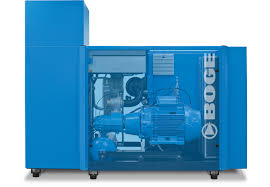Let’s discuss the different qualities of air compressors. By this, I mean the difference between the compressors available from the “Big Box Hardware Stores”, the discount tool stores and true industrial grade compressors.
We are discussing reciprocating/piston type compressors.
The quality can best be stated in terms of service life. That is, the total number of hours you can expect the compressor to operate without repairs becoming non cost effective; do the cost of repairs or repair interval exceed the cost of a new compressor? Are repair parts even available?
The service life of the typical homeowners’ compressor (those intended for use by a homeowner to occasionally inflate car or bicycle tires, etc. can be expressed in hours or weeks. Consider that if a compressor is only used a few minutes a month to adjust the inflation pressure of a tire, it can take years to use the compressor for the 168 hours in a week. An industrial compressor is engineered to last for years in daily use for hours each day. This explains the difference in cost of an industrial compressor and the unit designed to be used at home or in a hobby shop.
An industrial compressor will typically be sized in even horsepower numbers, i.e. 2, 3, 5, 7.5, 10, 15, 20 horsepower, etc. Apart from the 7.5 horsepower unit, a compressor will never be sized as 9.5, 6.3, etc. horsepower. The next clue that you are looking at a non-industrial unit is that the service rating pressure. It will always be either 100 psi, 125, 145 or 175 psi, never at a pressure of 95 psi. Nor will an industrial be rated in the size of the tank i.e. a “60-gallon compressor”.
While the low initial cost of a light duty compressor is attractive to a start-up or a struggling business, this is an instance of destructive false economy.
Are there low-cost industrial units? Yes, they do exist. Keep in mind that you will get exactly what you pay for.
We will discuss the differences in a future article.

